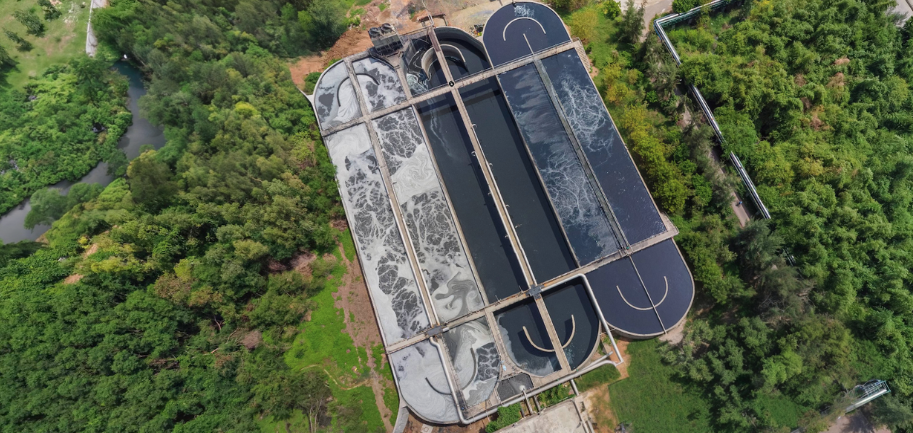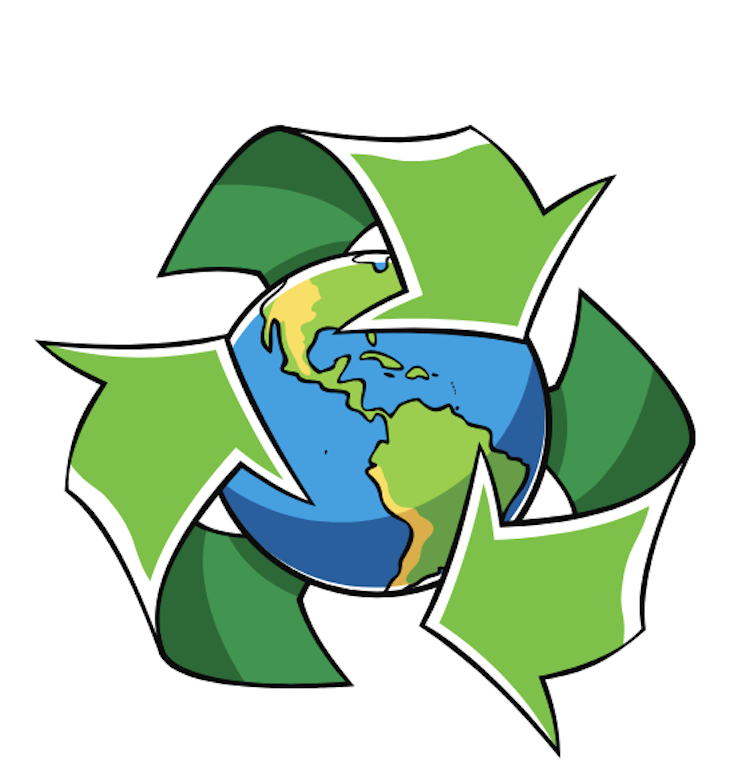WHY IS THE CIRCULAR ECONOMY THE FUTURE?
The circular economy is a sustainable development model that reduces waste and maximizes the reuse of resources. In the water sector, it means optimizing water treatment and management to reduce consumption, pollution, and costs.
WaterNext adopts innovative technologies for the treatment and reuse of water, contributing to the decarbonization and ecological transition of industries.

INNOVATIVE WATER TREATMENT SOLUTIONS
1. The three R’s approach in the circular economy: reduce, reuse and recycle
The circular economy is based on the principle of the Three R’s: Reduce, Reuse and Recycle, a fundamental model for minimizing environmental impact and optimizing the use of resources.
💧Reduce: optimize production processes to consume less natural raw materials, limit waste and improve energy efficiency. This principle applies to product design, processing methods and end-of-life management;
💧Reuse: giving objects a second life, extending their use through repair, remanufacturing or direct reuse, reducing the need for new production;
💧Recycle: transforming materials and waste into new resources, reducing the extraction of raw materials and limiting the environmental impact of industrial production.

Adopting the three R’s model means creating a more sustainable and resilient production system with long-term economic and environmental benefits.
2. The WaterNext model: solutions for a sustainable water cycle
WaterNext implements advanced technologies to optimize the water cycle and reduce waste.
💧Water treatment and reuse: the adoption of advanced technologies, such as advanced filtration and reverse osmosis, makes it possible to purify and reuse water in industrial processes, reducing the consumption of water resources and promoting a more sustainable economy;
💧Energy efficiency and emission reduction: optimizing energy consumption in water treatment plants is essential to reduce environmental impact. Energy recovery from purification processes helps decrease dependence on fossil fuels, making the system more efficient and sustainable;
💧Reducing the use of chemicals: the use of advanced biological treatments makes it possible to limit the use of chemicals in purification processes. Innovative techniques, such as filtration with sludge and bacteria, improve the quality of treated water and promote a more ecological approach to water management.

These solutions contribute to a more sustainable future by optimizing water and energy resources for a reduced environmental impact.
3. The benefits of the circular economy in the water sector
The adoption of the circular economy in water treatment brings concrete benefits:
💧Water savings: less waste, more water reused;
💧Lower operating costs: more efficient processes and less energy consumed;
💧Reduced pollution: less impact on ecosystems;
💧Increased business competitiveness: compliance with environmental regulations and improved corporate image.
Companies that adopt circular models are more sustainable and resilient in the long term.
4. The future of sustainable water management
The circular economy is not just an option, but a necessity to tackle climate change and water scarcity. WaterNext is leading the way with innovative solutions for a more efficient and sustainable water cycle.
THE CIRCULAR ECONOMY AS THE KEY TO A SUSTAINABLE FUTURE
The circular economy is not just a strategy, but a real paradigm shift to build a more sustainable future. Reducing waste, reusing resources and optimizing processes are key actions to preserve the environment and ensure responsible use of raw materials.
In the water sector, WaterNext demonstrates that it is possible to combine innovation, sustainability and efficiency by adopting advanced technologies for water treatment and reuse. A circular approach not only reduces environmental impact, but also optimizes operating costs and improves business competitiveness.
Investing in circular solutions means protecting our planet and creating a more resilient economic system. Are you ready to be part of this revolution?WaterNext implements the circular economy in water treatment, optimizing resources through advanced filtration, energy efficiency, and chemical reduction. These solutions minimize environmental impact, improve sustainability, and drive long-term efficiency in water management.

Comments are closed